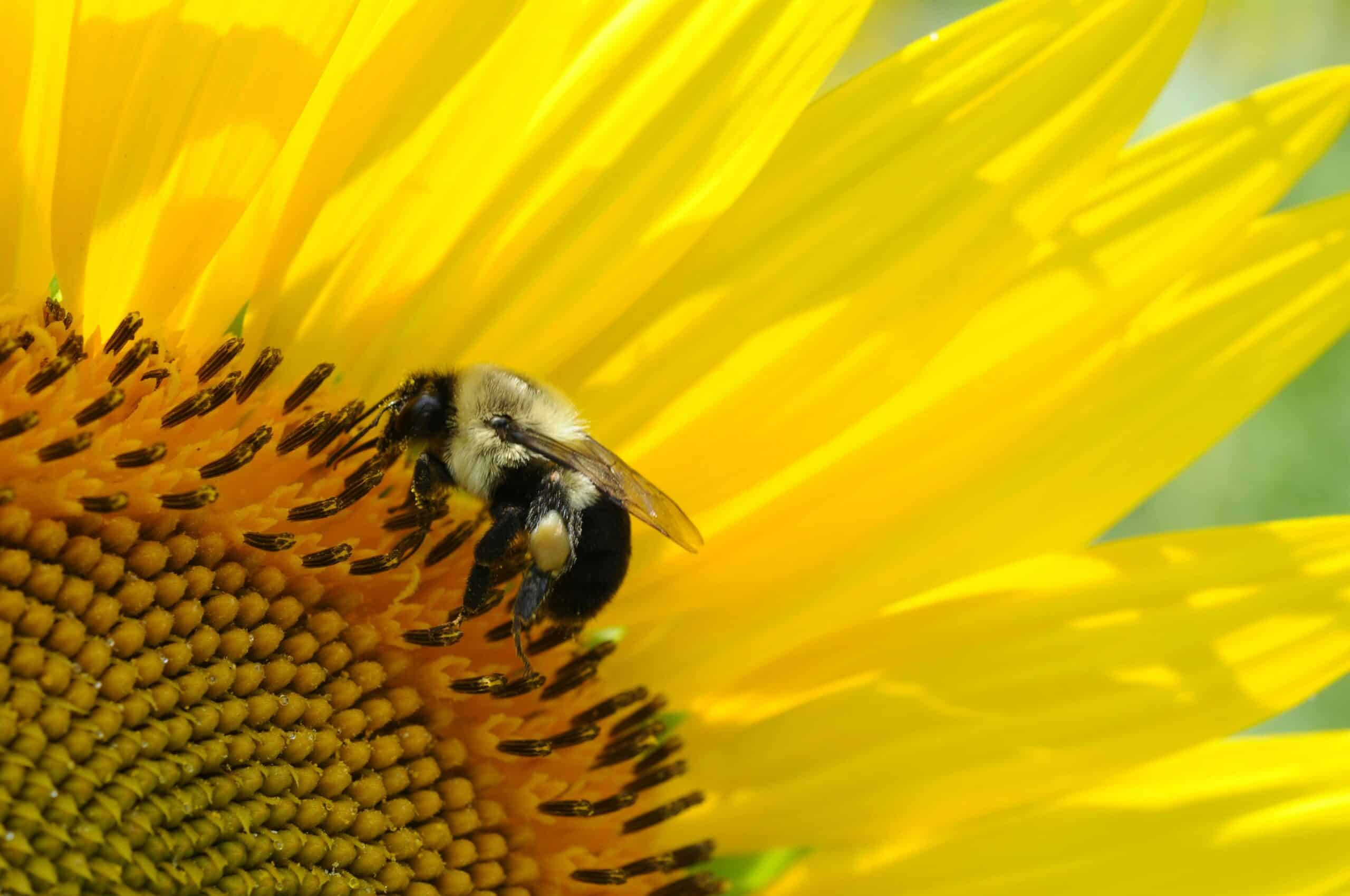Need Bee Removal ASAP?
Give us a call for 24/7 Emergency Wildlife Control & Removal in Dallas/Fort Worth.
(817) 606-7607Contact UsContact UsNorth Texas is home to a varied range of bee species, each of which contributes significantly to pollination and our ecosystem. While bees are important for biodiversity and agricultural productivity, their presence in residential areas can cause concern for homeowners. Understanding the characteristics and activities of common bees in North Texas is critical for homeowners to identify potential hazards and take proper precautions to guarantee the safety and harmony of these important pollinators.
Honey Bees
Honey bees are well-known for their ability to pollinate crops and produce honey. Honey bees are normally calm and non-aggressive, but they may sting if provoked or if their colony is disrupted. Homeowners should be cautious around honey bee colonies, especially if they see an increase in bee activity or suspect the presence of a hive on their property.
Bumble Bees
One of the most common bees in North Texas is the bumble bee. Bumble bees are larger and stronger than honey bees, with unique black and yellow markings. They play a crucial role in pollinating wildflowers, fruits, and vegetables throughout North Texas. Bumble bees are normally non-aggressive, however they may sting to defend their hives or when attacked. Homeowners should be aware of bumble bee nests in the ground, compost piles, and other sheltered spots on their property.
Carpenter Bees
Carpenter bees are solitary insects that dig tunnels in wood to build nests. While male carpenter bees are not hostile, they can become territorial and hover near people to defend their area. Female carpenter bees have stingers, but they rarely utilize them unless directly threatened. Homeowners should keep an eye out for evidence of carpenter bee activity on wooden structures including decks, eaves, and fences, and take precautions to prevent nesting.
Sweat Bees
Sweat bees are little, metallic-colored insects attracted to human sweat. While sweat bees are normally non-aggressive and rarely sting unless provoked, homeowners may meet them while working outside or participating in outdoor activities throughout the summer. While their stings are usually moderate, people who are allergic to bee stings should be cautious near sweat bees.
Africanized Honey Bees
Often known as “killer bees,” Africanized honey bees are a hybrid subspecies of honey bees that exhibit aggressive behavior and swarm in high numbers. While they are not unique to North Texas, they have been reported in the area and may represent a threat to homeowners and outdoor enthusiasts. Africanized honey bee stings can be more potent than those of European honey bees, and they can swarm in response to disturbances or perceived threats.
Bees serve an important role in pollination and ecological health, yet their presence near residential areas may pose concerns to homeowners. These dangers include:
- Sting Risk: Bee stings can cause pain, edema, and allergic responses in some people. Those with bee sting allergies or impaired immune systems are more likely to experience severe reactions and should avoid bee encounters.
- Nesting Damage: Bees may build nests in or around homes, causing structural damage and potential hazards to occupants. Nests found in wall voids, attics, or crawl spaces may require professional removal to avoid further damage and protect safety.
- Swarm Encounters: Swarming bees, particularly Africanized honey bees, can become aggressive if disturbed. Swarming can occur when colonies overrun their nesting locations or in reaction to environmental conditions like temperature fluctuations or disturbances.
While bees are important pollinators and contribute to ecosystem health, their presence near residential areas might endanger homeowners. By learning about common bees in North Texas and adopting proper precautions, homeowners can reduce the risks connected with these fuzzy pollinators.
Are you in need of bee removal? Our friendly operators at Dallas Fort Worth Wildlife Control are available now at (817) 606-7607. Find out more about our wildlife removal in Arlington and Fort Worth, TX.


